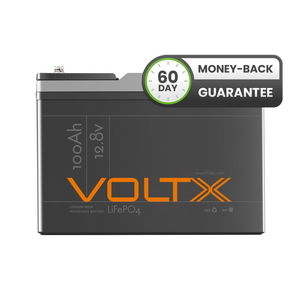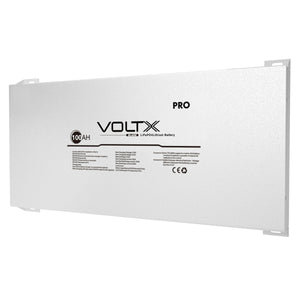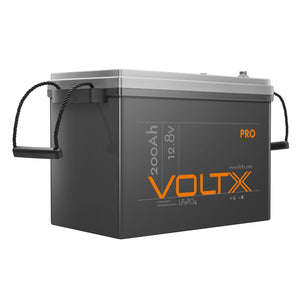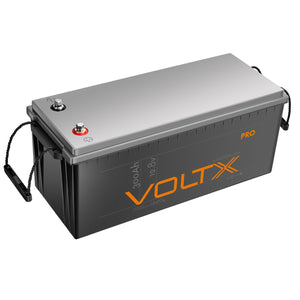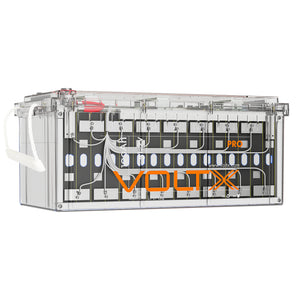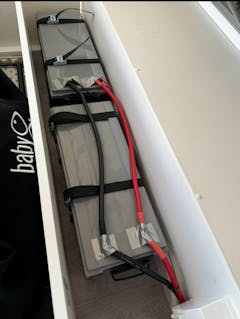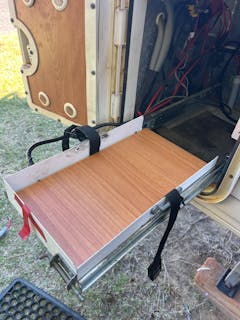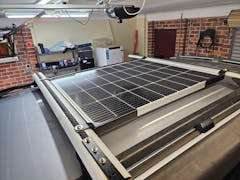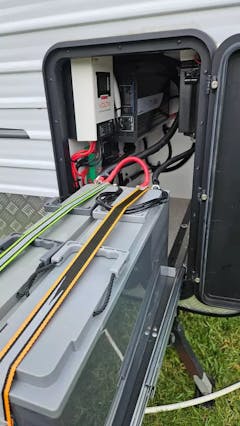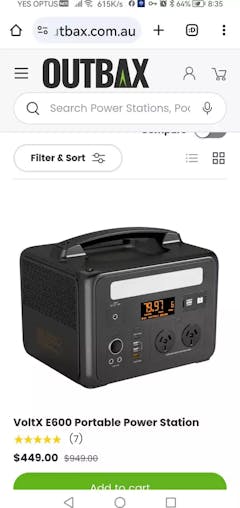RV batteries are key for when the open road calls, and it 's time to hop into your RV and set off on your next adventure around this beautiful country. If you are ticking things off your bucket list, you need to ensure that you are doing it right and safely. You don 't want to be stuck without power, right?
Quality RV batteries are an important part of a vehicle 's setup. They power it up, so you will need a reliable product if you like your creature comforts. RV batteries can run accessories like your overhead lights and smaller equipment, such as the radio and the water system. You definitely need hot water and need to see it at night, so choosing the best camper trailer battery is important.
While a vehicle can be powered from an external outlet, you 're going to need a battery for when there isn't one. This will allow you to take your mobile home to far-flung places and still be able to run the power alongside your generator or solar panels. Even if you are in a camping ground or caravan park, where you can connect to the outlet, a battery will help you out in the case of a power cut.
How to choose the best RV battery?
The right RV batteries are going to make your outdoor adventures a whole lot easier and more comfortable. For car batteries and for camper batteries that start the vehicle, it 's all about the cold cranking amps (CCA). Still, for RV batteries, it 's whether they can provide adequate power at a low level over a long period of time, different from an engine-starting battery. RV batteries also tend to get heavily discharged before fully recharging. This is called deep cycling.
There are a few specs to check out when choosing your battery. The capacity of deep cycle RV batteries is measured in Amp-Hours (AH). The more amps it can provide over 20 hours, the better, so you 're looking for a battery with a higher AH rating. You 'll also want to consider the voltage. This gives you an idea of the power of the battery 's current in volts. The battery 's C-rating will indicate how long it will take a battery to be discharged, so you 'll know how much time before you need to charge it again. There 's also cycle life which lets you know how many times a battery can be discharged and recharged without losing more than 20% of capacity.
A lot of RV batteries are lead acid batteries, but not all batteries are created the same. A flooded cell is the most common type of lead-acid battery and uses an electrolyte solution. Overall, they are the low-cost choice.
Absorbed Glass Mat (AGM) batteries are the most recent design technology. AGM batteries also run on an electrolyte solution and are designed to minimise the solution loss that is an issue in the flooded cell as they have sealed cells. They are also more impact resistant and durable. Sealed gel batteries are similar to AGM batteries. They have a sealed case, and instead of a liquid solution, it 's more of a gel-like consistency.
Lithium-ion batteries are also chosen as RV batteries for their great performance. One of their advantages is a higher depth of discharge (DoD), meaning you can use more of the battery 's stored energy. This means the size is smaller, and it 's lighter. Space is at a premium in a caravan or other adventure vehicle, and lithium-ion batteries can reduce weight on your tow. They are also great for off-grid camping as they enhance the abilities of your solar set-up or your generator. They have been known to catch fire; however, the LiFePO4 commonly used is one of the safer choices.
How to maintain RV batteries?
Probably the most high maintenance, a flooded-cell battery will need distilled water added approximately every 2 - 4 weeks to top up the electrolyte solution. It will also need an equalisation charge every 90 days and maintenance to prevent corrosion and failure.
As the battery 's electrolyte solution is sealed in for the AGM battery, it 's pretty much maintenance-free. Still, it 's good to remember to recharge it before storing it for a long time and take care to avoid overcharging.
Gel batteries have some of the low-maintenance characteristics of the AGM but can become damaged if exposed to high amperage. To maintain your battery, make sure that you don 't overcharge or overheat it.
A lithium-ion battery should be stored at around 50% charge to increase its battery life. An inbuilt battery management system (BMS) will also do much of the maintenance for you. Keep in mind, though, that they don 't like sub-freezing temperatures and will not charge. High temperatures will accelerate the ageing process as well.
At Outbax, we have a wide range of RV batteries and other batteries, including solar batteries, marine batteries, boat batteries and golf cart batteries, with great offers and automated shipping to deliver your product quickly.
